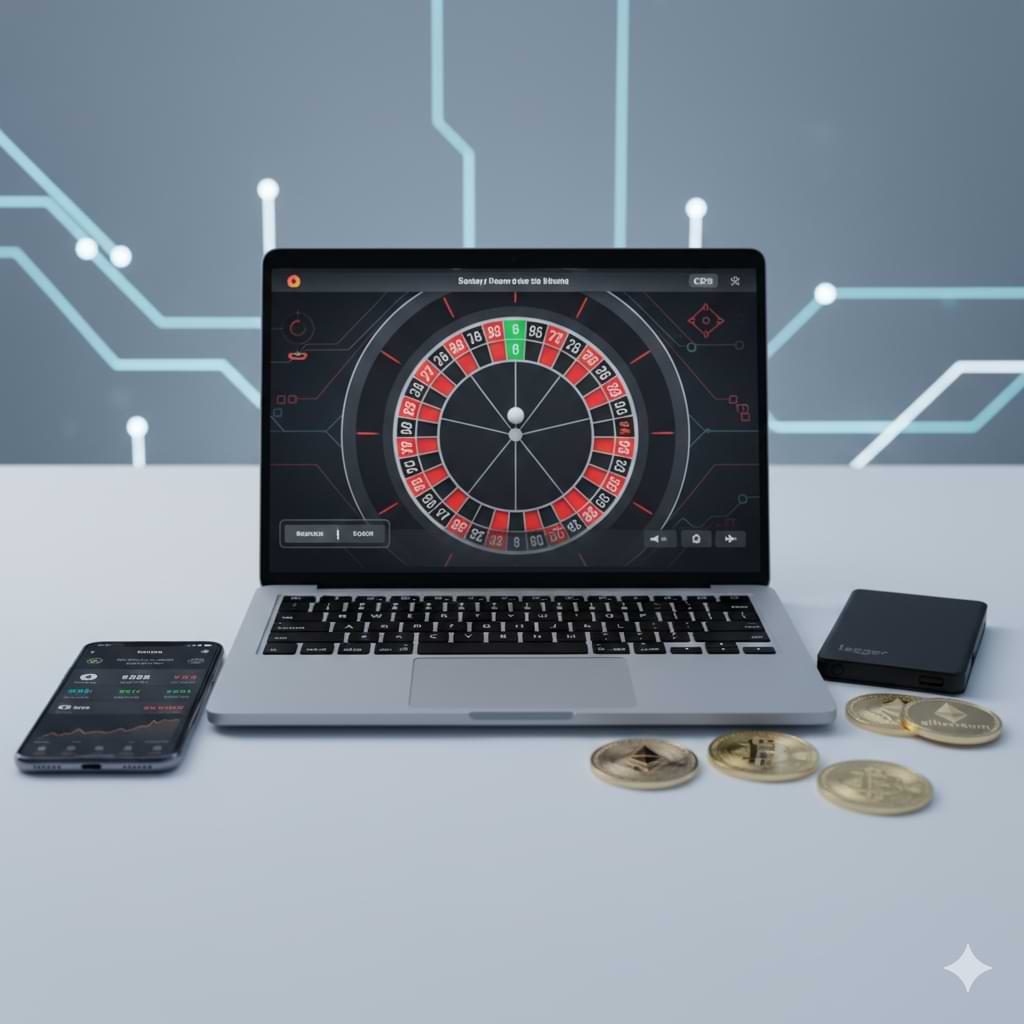The phrase “crypto casino” covers any gambling site that lets you deposit, wager, and withdraw using digital assets like BTC, ETH, or stablecoins. The selling points are usually speed, global access, and lower fees compared with some legacy payment rails. But that’s only part of the story. This overview explains how these sites work, what advantages they promise, the trade-offs you should expect, and how to evaluate options without falling for hype.
What “crypto” changes—and what it doesn’t
Blockchains enable near-instant, borderless transfers without intermediaries. In practice, that can mean:
- Faster settlement: On-chain or layer-2 transactions are often quicker than bank wires or card refunds.
- Lower friction for cross-border players: Fewer card declines and fewer currency-conversion headaches.
- Provably fair systems: Some platforms publish cryptographic hashes so you can verify game outcomes weren’t tampered with.
What doesn’t change is the house edge. Roulette is still roulette; slots still have programmed volatility; blackjack rules still determine expected value. Crypto doesn’t turn negative-EV games into positive ones—it mostly changes the rails, transparency, and user experience.
The fine print: regulation, KYC, and jurisdiction
Crypto casinos live across a patchwork of licensing regimes. Some require full KYC; others allow limited play with only an email and wallet. Before you sign up:
- Check the license (jurisdiction and number), dispute channels, and responsible-gaming tools.
- Confirm your local legality. Gambling laws are location-specific; “global access” doesn’t equal “legal access.”
- Expect KYC at withdrawal thresholds. Even “no-KYC” sites often trigger checks for anti-fraud and AML.
Games and fairness
Most crypto casinos offer slots, table games, and live-dealer tables, plus crypto-native titles with provably fair verification. When reviewing a site:
- Look for RTP disclosures from recognized studios.
- Verify provably fair documentation (seed, hash, and verification steps).
- For live games, consider the studio’s reputation and streaming quality.
Tokens, fees, and volatility
Funding with crypto introduces new dynamics:
- Asset choice: Stablecoins (USDT/USDC) reduce price swings; volatile coins add an extra layer of risk to your bankroll.
- Network fees & speed: BTC can be slow/expensive at peak times; L2s (e.g., Arbitrum, Base) are faster/cheaper; Solana is low-fee but requires compatible wallets.
- On/Off-ramp costs: Moving from fiat to crypto (and back) may incur spreads and fees that can dwarf “zero-fee” marketing claims.
Bonuses and loyalty—read them like a lawyer
Crypto casinos compete aggressively on promotions, but value depends on terms:
- Wagering requirements: 20–40× is common; make sure you know which games contribute.
- Max cash-out caps and time limits: These change the real value of a bonus.
- VIP tiers: Cashback and rakeback can be meaningful if you play volume, but don’t chase status.
Security and privacy
Self-custody reduces card-fraud risk, but adds responsibility:
- Wallet hygiene: Use hardware wallets for large balances; enable 2FA; keep seed phrases offline.
- Site security: Look for bug-bounty programs, third-party audits, and transparent status pages.
- Data handling: Even with crypto, sites collect metadata; read privacy policies if anonymity matters.
Bankroll management still rules
Whatever rails you use, long-term outcomes are driven by discipline:
- Set loss limits and session clocks.
- Size bets for variance. High-volatility slots can swing violently; table games demand smaller unit sizes.
- Treat crypto P&L separately from coin price moves. A winning session in a falling token can still net a fiat loss.
How to compare platforms
Use a checklist rather than vibes:
- License, responsible-gaming tools, dispute process
- Wallets/chains supported, fees, and on/off-ramp options
- Game library quality (RTPs, studios, provably fair docs)
- Bonus terms (clear, enforceable, and realistic)
- Support responsiveness (24/7 chat, knowledge base quality)
- Track record (downtime, security incidents, public disclosures)
For a comparative look at features and policies, see this independent roundup of the best crypto casinos.
Bottom line
Crypto can improve speed, transparency, and access, but it doesn’t change the math of gambling—or the importance of regulation and safeguards. If you choose to play, think like a systems engineer: verify, limit risk, document costs, and keep your entertainment budget separate from your investments.
Disclaimer: This is informational, not legal, tax, or financial advice. Wager only where lawful and with money you can afford to lose.
